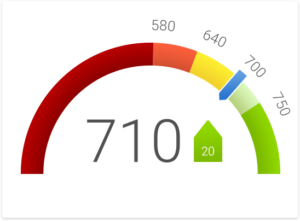 Today’s top story: Disability and Credit Access: why scores are key in a crisis. Also in the news: 4 features to look for in the best credit cards of 2022, considering the suburbs, and is trading employee equity a good idea?
Today’s top story: Disability and Credit Access: why scores are key in a crisis. Also in the news: 4 features to look for in the best credit cards of 2022, considering the suburbs, and is trading employee equity a good idea?
Disability and Credit Access: Why Scores Are Key in a Crisis
Having good credit can help you get low-interest loans or credit cards to help you cover your bills in an emergency. Here’s how to get started.
Best Credit Cards of 2022: 4 Features to Look For
Credit card issuers are offering more choice and flexibility as they add features to new cards.
Can’t Buy the House You Want? Consider Moving Out of the City
Suburban and small-town living has its perks, including more spacious and affordable choices for first-time home buyers.
Is Trading Employee Equity a Good Idea?
Buying or selling employee equity has become easier and more accessible, but is it right for your portfolio?
 Today’s top story: 5 ways to prepare and pack for COVID-Era travel. Also in the news: 8 safety tips for solo female travel, how doing a subscription detox could plug monthly budget leaks, and how to take advantage of (and keep) a high credit score.
Today’s top story: 5 ways to prepare and pack for COVID-Era travel. Also in the news: 8 safety tips for solo female travel, how doing a subscription detox could plug monthly budget leaks, and how to take advantage of (and keep) a high credit score.